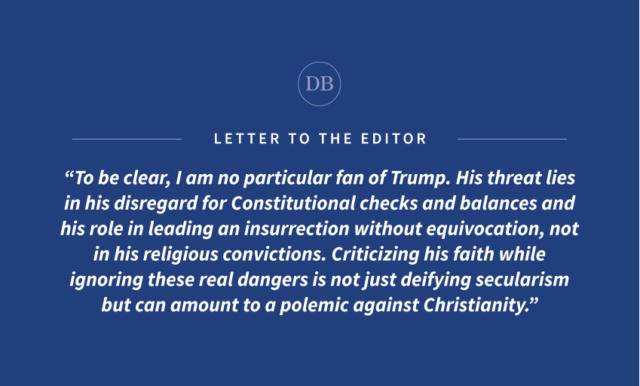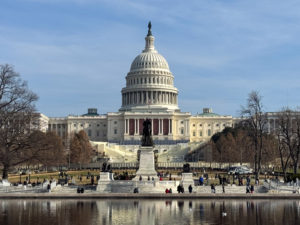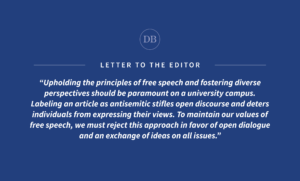This post was updated March 2 at 8:46 p.m.
On the morning of June 6, 1944 – D-Day – as American soldiers stormed the beaches of Normandy, President Franklin D. Roosevelt took to the radio to lead the nation in prayer:
“Almighty G-d: Our sons, pride of our Nation, this day have set upon a mighty endeavor, a struggle to preserve our Republic, our religion, and our civilization, and to set free a suffering humanity.”
In one of the most pivotal moments in Western history, the president called upon G-d – not to impose a theocracy but to seek strength and unity. Yet today, when President Trump invokes G-d at his inauguration, we are told this signals an existential threat to democracy. Never mind that President Obama also referenced G-d multiple times in his inaugural addresses.
The claims expressed in the opinion piece “Donald Trump’s defying of the church-state boundary sets a dangerous precedent” fundamentally misunderstand the role of faith in American public life, especially as the author claims that the government should privilege “secular principles.”
Religion has been present in American character since its inception. From the Pilgrims’ arrival to the abolitionist movement to the Rev. Dr. Martin Luther King Jr.’s sermons about justice, faith has always guided our nation’s moral conscience. Every president has expressed belief in G-d, and to demonize Trump for stating he was “saved by G-d” is to disregard American history and the Free Exercise Clause of the First Amendment. On the other hand, the Establishment Clause prevents the government from imposing state religion. It doesn’t prohibit individuals from expressing personal faith.
The opinion also takes issue with Trump’s support for faith-based organizations, but nearly 60% of U.S.-based foreign aid organizations are religious NGOs, helping millions worldwide. Should we discard them simply because they are religious?
To be clear, I am no particular fan of Trump. His threat lies in his disregard for constitutional checks and balances and his role in leading an insurrection without equivocation, not in his religious convictions. Criticizing his faith while ignoring these real dangers is not just deifying secularism but can amount to a polemic against Christianity.





Comments are closed.